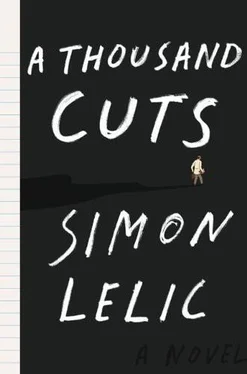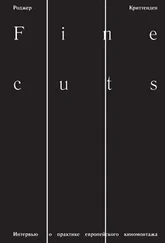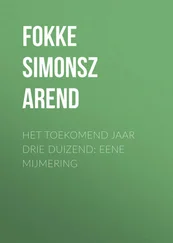Yes, he says. I think it is.
And I say nothing because I don’t agree with him and I don’t want to start another argument. He starts one instead.
You don’t agree.
No, I say. It’s not that.
You think I’m wrong.
Well, I say. No. I mean, yes, I do think you’re wrong but that’s fine. You’re entitled to your opinion.
I know, he says. What’s yours?
I put down my cake. I don’t really want it and the piece I’ve cut is enormous. In my opinion, I say, music shouldn’t be constrained by opinion. If music talks to you, you should let it. You shouldn’t shut it out just because of what someone else thinks or says or does.
He grunts. He smiles.
What? I say.
You have to say that, he says.
What? I say again. What do I have to say?
What you said. You have to say what you said.
Why? Why do I have to say that?
Because you’re a music teacher, says Samuel. You have to pretend to be open minded.
Pretend? You think I’m pretending?
Maybe, he says. And he tears himself a corner from my slice of cake.
That’s my cake, I say.
I thought you didn’t want it.
When did I say I didn’t want it? I do want it.
Here then, he says.
I don’t want it now. And when I say this I realise I’m being rude, like the fact that he’s touched it has contaminated it somehow.
I think, says Samuel, I think it’s time I left. It was nice to meet you.
Yes, I reply. That’s all I can say. He leaves and everyone else seems relieved but I just feel like a fool.
The thing with Samuel, you see, is that he had opinions. Have you noticed how these days nobody has an opinion? People say too much and they don’t listen but when they speak they talk about nothing. Samuel seemed aloof because he was quiet but if you were ever to talk to him – and I mean talk to him, not chat with him, not try to pass the time – he would talk to you right back. He would listen to what you had to say, genuinely listen, and he would consider it and often dismiss it and he would tell you what he thought himself. And his opinions could seem conceited or misconceived or sometimes a little scary but at least he had an opinion.
Here’s what I think, I tell him when I catch up with him in the staffroom on the first day of term. Here’s my opinion, since you value opinion so much. Mozart was the second greatest composer who ever lived. He was a genius. Tchaikovsky was a moron and Rachmaninov a sentimental fool.
What about Prokofiev? he says, no hesitation, no surprise in his tone.
Second tier, I say. B list. Also a sentimental fool.
And he nods and I say, just don’t tell the kids I said that. If they ask, tell them I said Prokofiev was a genius too.
After that we talked more and more. Never in company. Never if anyone else was around. If we happened to be in the staffroom and someone else walked in, we stopped talking, we just did. I don’t know why. I think I assumed he preferred it that way and maybe he assumed that I did too. Maybe he assumed it would be easier for me. You know, because of who he was, because of what the others thought of him. But we were fooling ourselves. Everyone knew. All the teachers knew, the headmaster knew, even the kids knew. Somehow the kids always know.
I was the one to ask him out of course. He would never have asked me. It took some courage, I can tell you. Some courage and, from the bottle we keep hidden under the sink for emergencies, a nip of whisky.
The first time, I ask him to go to the movies with me. There’s something European on at the Picturehouse and I think that because it’s European he’ll like it. I don’t know, I just assume that he’ll be into foreign films. As it turns out, I love it and he hates it. He calls it pretentious. I think it’s exquisite. It’s in French and I love French. Such a musical language, so lyrical. I find myself just listening, not following the subtitles, not really knowing what’s going on. He takes in every word, I suppose, because afterwards he’s all why did they do this, no one would ever do that, who in the world talks like that? So analytical, so overly analytical.
The next time I ask him to an exhibition, to the Caravaggio at the National Gallery. I almost don’t but I feel guilty about not asking him out again because I don’t really want to, not after the film. So I decide an art gallery will be just the place. You know, quiet, formal, an afternoon not an evening. I’ll make it clear that I only want us to be friends.
It’s wonderful. I have the most wonderful time. Do you know anything about art, Inspector? I know nothing about art. I know what I like and I admire most things I could never do. Samuel, though – he can paint. Did you know that? He’s a painter. What am I saying? He was a painter. He was.
No, I’m fine. Really. I’m not crying because of that. You know, because of him. It’s just, I don’t know. The whole thing is just—
Well. Anyway. Samuel, he could paint. He said he hadn’t for some time but he knew so much about it and he was so enthused, so delighted by the whole thing. Isn’t it refreshing to be with someone who has passion? And to be surprised by someone having passion whom you’d assumed had none? Or not none exactly. I mean, I knew about the teaching, I knew how important he thought teaching was but I had no idea there was anything else that inspired that same enthusiasm in him.
We stay in the gallery until it closes. We sit and we walk and we watch the other visitors. Samuel is so funny. He talks about the paintings and he talks about the other people too, making jokes, constructing little caricatures – you know, the pompous art student, the wannabe actor turned tour guide, the philistine American. I thought at the time that he was being funny but maybe, thinking about it now, maybe he was actually being cruel.
We had sex once. Not that day, another day, months later. He wasn’t good at it but I didn’t mind because I’m hardly an expert myself.
You’re recording this. I keep forgetting you’re recording this.
What does it matter? We had sex and it was bad. It was awkward before and it was awkward during. I was a little drunk. Samuel was too. He didn’t drink much as a rule and neither do I but we’d finished most of a bottle of shiraz. We’re at my place and I’ve made him some dinner and we’re watching a film but it isn’t very good so I turn it off and I put on the stereo—
You know what? I don’t want to talk about this. Can we not talk about this?
We broke up. That’s how this ends. I say we broke up but that sounds so conventional and our relationship was anything but conventional. Apart from that one time, there was no physical involvement. We didn’t even kiss. I’m embarrassed to say that, I don’t know why. But it’s the truth. We didn’t kiss, we didn’t hug, we didn’t even hold hands. Once or twice we held hands but only if we were crossing a road or he was helping me from the bus or something silly like that. And it wasn’t just that. In a normal relationship, you don’t hide your affection like it’s something to be ashamed of, you don’t hide your lover from your friends and from your family and from yourself sometimes, even from yourself.
We argued. I suppose in that sense it was a normal relationship. Samuel was having a difficult year. There was the headmaster and there was TJ but also there were the kids. Although with the kids I couldn’t help. I didn’t try because it was beyond me. What they did – what they would do to Samuel – I just couldn’t understand it. I wouldn’t have believed it if I hadn’t seen it for myself. No, when we argued it was about nothing in particular. It would start off as being about something – about TJ maybe, about his pranks – but in the end it would be about nothing. Nothing and everything.
Читать дальше












